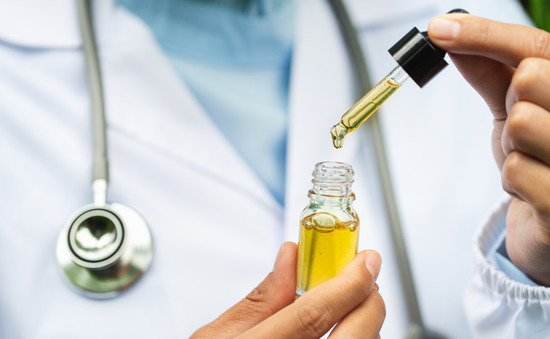
Living with obstructive sleep apnea (OSA) can make quality rest feel out of reach. This sleep disorder is characterized by frequent breathing disruptions throughout the night, depriving the body of oxygen and interrupting the natural sleep cycle. Although early symptoms like fatigue and irritability may seem manageable, untreated OSA can lead to serious health risks. While CPAP machines and oral appliances are standard treatments, new research suggests that CBD oil could help improve sleep quality for people with sleep apnea. Read on to learn more!
Can CBD Help with Sleep Apnea?
Cannabidiol (CBD) is a natural compound derived from the cannabis sativa plant. Unlike THC, it doesn’t produce a “high.” Instead, CBD is increasingly used for its potential therapeutic effects on anxiety, pain, and sleep disorders. While research into CBD’s effects on sleep apnea is still in its early stages, studies suggest it may help ease insomnia – a common symptom for people with sleep apnea.
CBD oil is available in various forms, including oils, capsules, and edibles, and research shows it may shorten the time it takes to fall asleep, improve sleep quality, and promote relaxation. Although promising, it’s important to remember that CBD isn’t a replacement for traditional sleep apnea treatment.
Why You Should See Your Dentist for Sleep Apnea Treatment
For those with sleep apnea, traditional treatment methods are vital and should remain a priority. People with mild-to-moderate sleep apnea may want to consider oral appliance therapy. This custom-fitted device repositions the lower jaw and tongue, reducing the likelihood of airway blockage. Some people find oral appliances more comfortable than continuous positive airway pressure (CPAP) therapy and may use them as an alternative or in combination with a CPAP machine.
Using CBD Oil Alongside Your Sleep Apnea Treatment Plan
Before adding CBD oil to your sleep apnea treatment plan, consult with a sleep specialist. While CBD may help with sleep quality, it’s not a substitute for CPAP or oral appliance therapy. Additionally, CBD’s long-term effects on sleep apnea and overall health still require further study.
If you’re considering CBD, a professional can help you explore how to safely incorporate it into your routine. Always follow your prescribed treatment plan and discuss any alternative options with your sleep specialist to ensure that your sleep apnea management remains effective.
About the Author
Dr. Jay A. Nelson is dedicated to helping his patients achieve restful sleep. Committed to excellence, he continually stays up to date with the latest in sleep dentistry, ensuring his patients benefit from high-quality care. To learn more about CBD and sleep apnea, visit our website or call (813) 694-1580.
